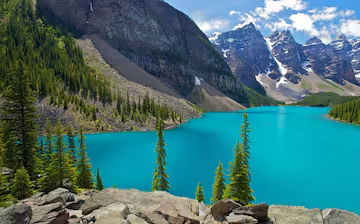📋 Table of Contents
What Does VRBO Stand For?
VRBO stands for "Vacation Rentals by Owner." It's an online marketplace that connects travelers with property owners who rent out their homes, condos, cabins, cottages, and other vacation properties for short-term stays. The name reflects the platform's original mission: enabling property owners to list their vacation homes directly to travelers without needing traditional rental agencies or intermediaries.
Founded in 1995, VRBO was one of the pioneering platforms in what we now call the "sharing economy" or "vacation rental industry." Today, it's one of the world's largest vacation rental platforms, owned by Expedia Group, and offers millions of properties in destinations around the globe, including thousands across Canada.
Unlike traditional hotels where you book a room, VRBO focuses on entire properties. This means when you book through VRBO, you typically get an entire house, apartment, condo, or cottage to yourself – not a shared space or single room. This focus on whole-home rentals makes VRBO particularly popular among families, groups of friends, and travelers who value privacy and space.

How Does VRBO Work?
VRBO operates as a two-sided marketplace connecting property owners (hosts) with travelers (guests). Here's how the platform works for both parties:
For Travelers
- Search: Enter your destination, travel dates, and number of guests on VRBO.com or the mobile app
- Filter: Narrow results by price, property type, amenities (pool, hot tub, pet-friendly, etc.), and more
- Browse: View detailed listings with photos, descriptions, reviews, and pricing
- Book: Reserve your chosen property either instantly or by sending a booking request to the owner
- Pay: Complete secure payment through the platform (never pay outside of VRBO)
- Communicate: Message the host through VRBO's messaging system for check-in details and questions
- Stay: Enjoy your vacation rental and follow the property rules
- Review: Leave a review after your stay to help future travelers
For Property Owners
- Create a Listing: Set up a detailed property profile with photos, descriptions, and amenities
- Set Pricing: Establish nightly rates, cleaning fees, and seasonal pricing
- Manage Calendar: Control availability and block dates when the property isn't available
- Receive Bookings: Accept instant bookings or review booking requests
- Communicate: Provide check-in instructions and answer guest questions
- Host Guests: Ensure the property is clean and ready for arrivals
- Receive Payment: Get paid through VRBO's secure payment system
The History of VRBO
VRBO has a rich history that spans nearly three decades in the vacation rental industry:
1995: The Beginning
VRBO was founded by David Clouse, who created the platform as a way to help vacation property owners connect directly with travelers. In an era before widespread internet adoption, this was revolutionary – most vacation rentals were booked through local agencies, newspaper classifieds, or word of mouth.
2006: HomeAway Acquisition
HomeAway, a company focused on building a global vacation rental network through acquisitions, purchased VRBO. This gave VRBO access to more resources and technology while maintaining its brand identity in the U.S. market.
2015: Expedia Group Acquisition
Expedia Group acquired HomeAway (and by extension, VRBO) for $3.9 billion. This brought VRBO under the same corporate umbrella as Expedia.com, Hotels.com, Orbitz, and other major travel brands.
2020: Brand Consolidation
Expedia Group consolidated its vacation rental brands under the VRBO name globally, retiring the HomeAway brand in most markets. This unified the vacation rental experience and simplified the company's brand portfolio.
Today
VRBO is one of the world's leading vacation rental platforms, with millions of listings worldwide and a strong presence in key vacation destinations including Canada, the United States, Europe, and beyond.
Types of Properties on VRBO
One of VRBO's strengths is the diversity of properties available. Here are the main categories you'll find, especially when searching for Canadian vacation rentals:
Houses
Single-family homes ranging from modest bungalows to expansive luxury estates. Ideal for families or groups who want full amenities including multiple bedrooms, full kitchens, yards, and parking.
Cottages and Cabins
Canada's "cottage country" culture is perfectly represented on VRBO. Find lakeside cottages in Muskoka, mountain cabins in the Rockies, or cozy woodland retreats across the country. These properties often feature rustic charm combined with modern conveniences.
Condos and Apartments
Urban apartments and resort condos are popular for travelers exploring cities like Toronto, Vancouver, or Montreal, or visiting ski resorts like Whistler where condo complexes offer ski-in/ski-out convenience.
Chalets
Mountain chalets are particularly popular in Canadian ski destinations. These often feature multiple levels, large windows with mountain views, hot tubs, and proximity to ski lifts.
Unique Properties
VRBO also features unique stays including converted barns, lighthouse keeper's quarters, treehouses, and historical buildings. These one-of-a-kind properties offer memorable experiences beyond typical accommodations.
Luxury Villas
High-end properties with premium amenities like private pools, home theaters, gourmet kitchens, and concierge services. Perfect for special occasions or travelers seeking exceptional comfort.

How to Book on VRBO
Booking a vacation rental on VRBO is straightforward. Here's a step-by-step guide:
Step 1: Create an Account
While you can browse VRBO without an account, you'll need to create one to book. Sign up with your email address, or use your Google, Facebook, or Apple account for quick registration.
Step 2: Search for Properties
Enter your destination (e.g., "Whistler, BC" or "Muskoka, Ontario"), your check-in and check-out dates, and the number of guests. Click "Search" to see available properties.
Step 3: Use Filters
VRBO offers numerous filters to help you find the perfect property:
- Price range: Set your nightly budget
- Property type: House, condo, cabin, etc.
- Bedrooms and bathrooms: Specify your space needs
- Amenities: Hot tub, pool, pet-friendly, Wi-Fi, waterfront, etc.
- Accessibility: Properties with accessibility features
- Instant Book: Properties you can book immediately without host approval
Step 4: Review Listings
Click on properties that interest you to see full details including:
- Complete photo galleries
- Detailed descriptions and house rules
- Amenity lists
- Guest reviews and ratings
- Location maps
- Full pricing breakdown (including fees)
- Cancellation policies
Step 5: Contact the Host (Optional)
If you have questions before booking, use the "Contact Host" button to send a message. Ask about specific amenities, check-in times, or anything not covered in the listing.
Step 6: Book the Property
When you've found your ideal property, click "Book Now" or "Request to Book." Some properties allow instant booking, while others require host approval. Enter your travel details and payment information to complete the reservation.
Step 7: Prepare for Your Trip
After booking, you'll receive a confirmation email. The host will send check-in instructions closer to your arrival date. Download the VRBO app to access your booking details and communicate with your host on the go.
Benefits of Using VRBO
VRBO offers several advantages over traditional hotel accommodations:
More Space
Vacation rentals typically offer significantly more space than hotel rooms. A family of four might feel cramped in a hotel room but can spread out comfortably in a three-bedroom cottage with a full kitchen and living areas.
Cost Efficiency for Groups
When traveling with family or friends, splitting a vacation rental can be more economical than booking multiple hotel rooms. Plus, having a kitchen allows you to prepare meals rather than eating every meal at restaurants.
Home-Like Amenities
Most VRBO properties include full kitchens, laundry facilities, multiple bathrooms, and living spaces. These amenities make longer stays more comfortable and practical, especially for families with children.
Privacy
Unlike hotels where you share hallways, elevators, and common areas with other guests, a vacation rental gives you private space. This is particularly valuable for families with young children or anyone who values quiet and privacy.
Authentic Local Experience
Vacation rentals are often located in residential neighborhoods rather than tourist districts. This allows you to experience destinations more authentically, shop at local markets, and explore areas off the typical tourist path.
Unique Properties
From beachfront cottages to mountain chalets, VRBO offers properties with character and charm that generic hotel rooms simply can't match. Many travelers choose VRBO specifically for unique or memorable accommodations.
Pet-Friendly Options
Many VRBO properties welcome pets, making it easier to travel with your furry family members. Filter by "pet-friendly" to find accommodations where your pets are welcome.
VRBO in Canada
Canada is one of VRBO's strongest markets, with thousands of vacation rental properties spanning the country's diverse landscapes:
British Columbia
From ski chalets in Whistler to beachfront homes in Tofino, BC offers year-round vacation rental options. Popular areas include the Okanagan Valley for wine country getaways, Vancouver Island for coastal escapes, and Vancouver for urban adventures.
Alberta
The Rocky Mountain destinations of Banff, Canmore, and Jasper are home to numerous VRBO properties, from cozy cabins to luxurious mountain lodges. Lake Louise and surrounding areas also offer spectacular vacation rental options.
Ontario
Ontario's cottage country, particularly Muskoka, is a VRBO hotspot for summer vacations. The province also offers urban rentals in Toronto and Ottawa, wine country stays in Niagara, and cottage options in countless lake regions.
Quebec
Mont-Tremblant is a premier destination for both ski season and summer activities. Quebec City, Montreal, and the charming Eastern Townships also offer excellent vacation rental options. VRBO's French-language interface makes booking easy for francophone travelers.
Atlantic Canada
Prince Edward Island, Nova Scotia, New Brunswick, and Newfoundland offer coastal cottages, heritage homes, and unique maritime experiences. These provinces are particularly popular for summer getaways.

VRBO vs Airbnb
VRBO and Airbnb are often compared as the two major vacation rental platforms. Here are the key differences:
Property Types
VRBO: Focuses exclusively on entire homes and vacation properties. You won't find shared rooms or spaces where the host lives on-site.
Airbnb: Offers a wider range including shared rooms, private rooms within homes, and entire properties. This variety appeals to budget travelers and those who don't mind shared spaces.
Target Audience
VRBO: Particularly popular with families and groups who need multiple bedrooms and value space and privacy.
Airbnb: Appeals to a broader range of travelers including solo travelers, couples, and those seeking unique experiences or budget options.
Booking Experience
Both platforms offer similar booking experiences with search, filter, and messaging capabilities. VRBO is part of the Expedia Group, which may offer integration benefits with other travel services.
Fee Structure
Both platforms charge service fees to guests and/or hosts. The exact fee structures can vary, so it's worth comparing total prices for specific properties if they're listed on both platforms.
Which Should You Choose?
Choose VRBO if you want an entire home, are traveling with family or a group, value privacy, or specifically want a vacation-oriented property. Choose Airbnb if you're open to shared spaces, traveling solo or as a couple, or looking for unique experiences like treehouses or yurts.
Is VRBO Safe?
VRBO implements several measures to protect both travelers and property owners:
Verified Reviews
Reviews on VRBO come from verified guests who have actually stayed at the property. This helps you make informed decisions based on genuine experiences.
Secure Payments
All payments are processed through VRBO's secure platform. Never pay outside the system or wire money directly to a host – this is a red flag for potential scams.
Book with Confidence Guarantee
VRBO's guarantee provides protection if a property is significantly misrepresented or if you're unable to access a property you've booked. The program offers rebooking assistance or refunds in qualifying situations.
24/7 Customer Support
VRBO offers round-the-clock customer support to help with booking issues, questions, or emergencies during your stay.
Tips for Safe Booking
- Always book and pay through VRBO's official platform
- Read reviews carefully, paying attention to recent feedback
- Look for properties with many positive reviews
- Be wary of deals that seem too good to be true
- Never share personal financial information outside the platform
- Use VRBO's messaging system to communicate with hosts
Becoming a VRBO Host
If you own a vacation property in Canada, becoming a VRBO host can generate significant income. Here's what you need to know:
Getting Started
- Create a host account on VRBO
- Add your property details and high-quality photos
- Set your pricing, availability, and house rules
- Choose your booking preferences (instant book vs. request)
- Publish your listing and start accepting guests
Host Responsibilities
- Maintaining accurate listing information
- Keeping the property clean and well-maintained
- Responding promptly to guest inquiries and bookings
- Providing check-in instructions and support during stays
- Handling any issues that arise during guest visits
Earnings Potential
Income varies based on location, property type, seasonality, and demand. Popular destinations like Whistler, Muskoka, or Banff can command premium rates, especially during peak seasons. VRBO provides tools to help you set competitive pricing based on market data.
Tips for First-Time VRBO Users
For Travelers
- Read the entire listing: Don't just look at photos – read the description, rules, and reviews thoroughly
- Check the total price: Ensure you understand all fees including cleaning fees, service fees, and taxes
- Understand the cancellation policy: Each property has its own terms, so know what you're agreeing to
- Message the host: Don't hesitate to ask questions before booking
- Book early for peak seasons: Popular destinations fill up quickly, especially for summer and holiday periods
- Save properties: Use the heart icon to save favorites and compare options
- Leave a review: Help future travelers by sharing your honest experience
For Hosts
- Invest in professional photos: High-quality images significantly increase bookings
- Write detailed descriptions: Include everything guests need to know
- Respond quickly: Fast response times improve your ranking and guest satisfaction
- Keep your calendar updated: Block dates when the property isn't available to avoid conflicts
- Provide clear check-in instructions: Make arrival easy and stress-free for guests
- Stock essentials: Ensure basics like toilet paper, soap, and kitchen supplies are available
Frequently Asked Questions
How do you pronounce VRBO?
VRBO is pronounced "ver-boh" (rhymes with turbo). Some people also say the letters individually: "V-R-B-O."
Is VRBO free to use for travelers?
Creating an account and browsing properties is free. VRBO charges a service fee when you complete a booking, which is included in the total price shown before you confirm.
Can I trust VRBO reviews?
Yes, VRBO reviews come from verified guests who have completed stays at the property. Look for listings with multiple recent reviews for the most accurate picture.
What's the difference between VRBO and HomeAway?
They're now the same platform. HomeAway was consolidated under the VRBO brand in 2020. Learn more about the VRBO and HomeAway merger.
Can I cancel a VRBO booking?
Cancellation policies vary by property. Some offer flexible cancellation while others have strict policies. Always check the cancellation terms before booking.
Does VRBO offer insurance?
VRBO's Book with Confidence Guarantee provides some protection. Additional travel insurance is recommended for comprehensive coverage.
Is VRBO available in French for Canadian users?
Yes, VRBO offers a French-language version at vrbo.com/fr-ca with full functionality including search, booking, and customer support in French.
Conclusion
VRBO – Vacation Rentals by Owner – has transformed how millions of travelers book accommodations worldwide. For Canadian travelers, it opens doors to incredible vacation experiences, from lakeside cottages and mountain chalets to urban condos and coastal retreats.
Whether you're planning a family vacation to Muskoka, a ski trip to Whistler, or a romantic getaway to Quebec's Eastern Townships, VRBO offers the space, privacy, and unique character that hotels simply can't match. And for property owners, it provides a platform to share their vacation homes with travelers from around the world.
Now that you understand what VRBO is and how it works, you're ready to start exploring. Use our search widget above to find your next Canadian vacation rental, or browse our destination guides for inspiration on where to go.
Ready to Start Your VRBO Adventure?
Explore thousands of vacation rentals across Canada – from mountain chalets to lakefront cottages, your perfect getaway awaits.
